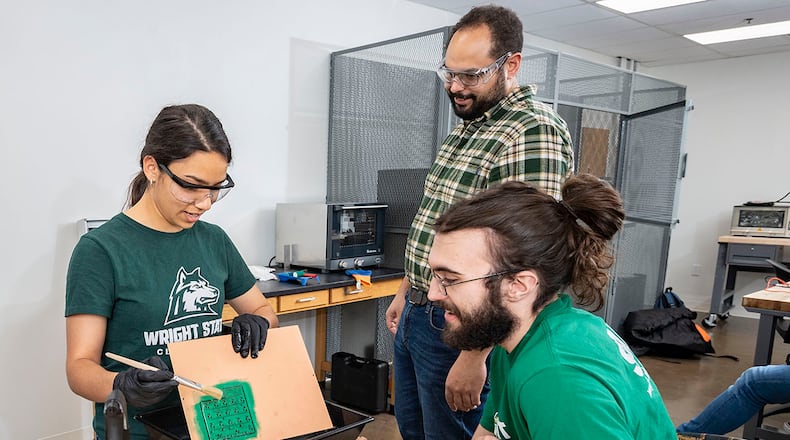In the university’s Digital Microelectronics Lab, students will learn to design and build microelectronics and how to ensure that microchips and microelectronics are free of malicious software and hardware, Wright State said.
“We want to teach the students how they fabricate the device here so we can prepare the workforce for the Air Force and Intel or other manufacturers,” said Fathi Amsaad, assistant professor of computer science and principal investigator on Wright State’s Assured Digital Microelectronics Education and Training Ecosystem (ADMETE) grant.
The Air Force awarded the contract in the fall of 2020 to Wright State, as well as the University of Akron, Youngstown State, Ohio University, the University of Toledo and Lorain County Community College.
The objective: Train undergraduate engineering and computer science students to design and develop trusted microelectronic devices and systems.
“An emphasis of the program is training students in the skills to analyze whether microchips and electronic devices have been manipulated and whether they can only perform the function for which they were designed,” the university said.
The goal is to address the shortage in qualified people who can implement assured digital microelectronics. The Air Force has a growing need to make sure that microelectronics systems from commercial foundries can be trusted.
About the Author

